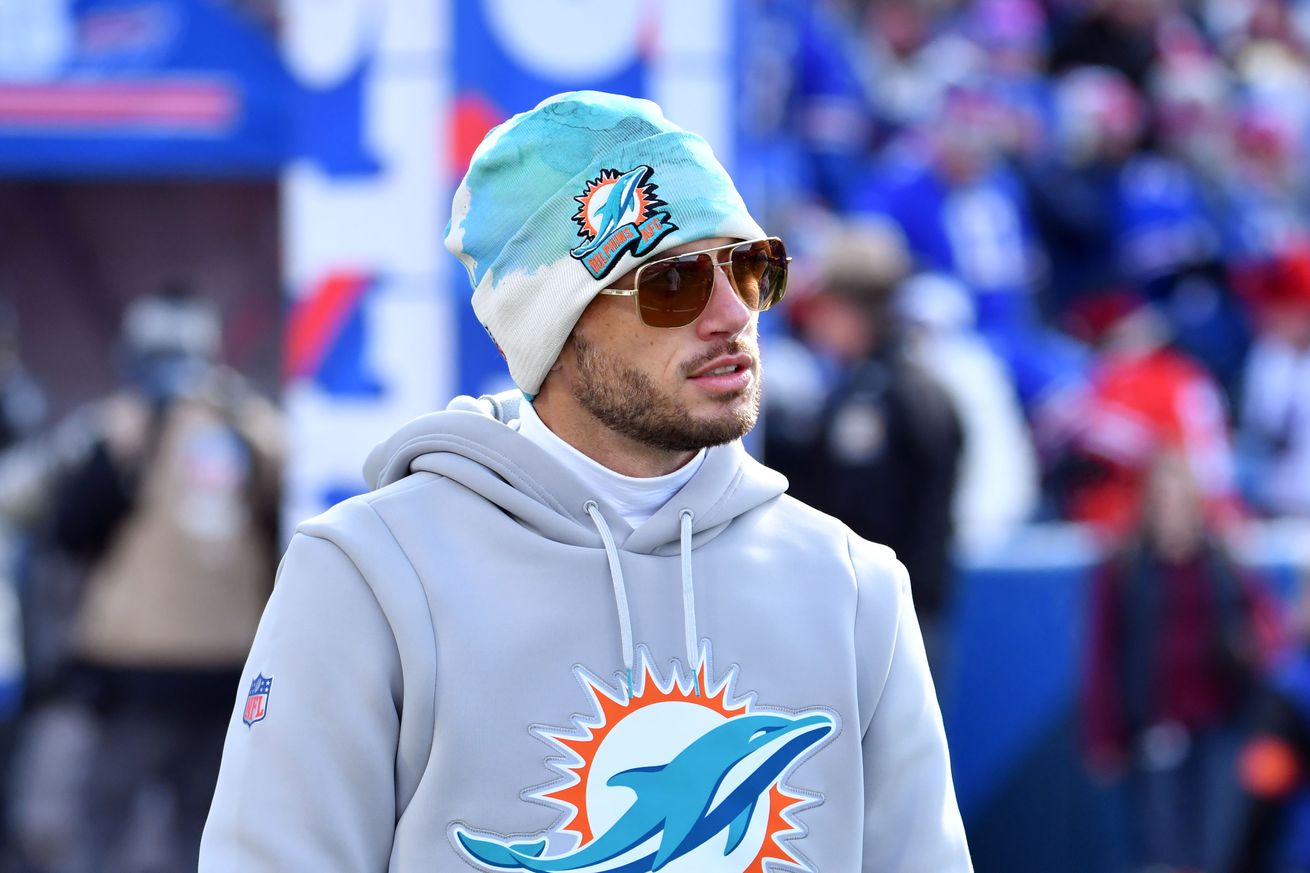Mark Konezny-USA TODAY Sports
The Dolphins better bundle up.
As Week 14 of the 2023 NFL regular season drew to a close, the Miami Dolphins held a 27-13 lead over the Tennessee Titans with under four minutes remaining in regulation. Had the Dolphins won that game, they would have improved to 10-3 on the year, giving them a three-game lead over the Buffalo Bills in the AFC East. Even had the rest of the season played out the same way, that win would ave been enoufh for the Dolphins to eventually clinch the division, rendering their loss to the Bills in the season finale meaningless for Miami.
It would have also given the Dolphins a home playoff game.
Instead, Miami blew that lead, becoming the first team since 2017 to blow a 14-pont lead with under three minutes remaining. The previous 582 teams in that situation had gone on to win. The Dolphins became the first team in that stretch to lose.
Now, they face a trip to Arrowhead Stadium, and if that were not bad enough, the Dolphins are on the verge of being part of yet more NFL history.
Of the weather kind.
Forecasters are calling for downright frigid conditions in Kansas City on Saturday. Current forecasts anticipate a high of just 12 degrees during the day on Saturday, but with this game slated to kickoff shortly after 7:00 p.m. local time — and well after sunset — temperatures will be in the single digits by the time that game gets underway.
The current forecasts anticipate a low of -3 degrees on Saturday night. Add in the expected wind chill, and it will feel a whole lot colder at Arrowhead this weekend.
That puts this game on path to be one of the coldest in NFL playoff history. The coldest NFL game remains the “Ice Bowl,” the 1967 NFL Championship Game between the Green Bay Packers and the Dallas Cowboys. That game saw temperatures of -13 degrees, with a wind chill of -48 degrees.
The next coldest game in NFL playoff history? The AFC Championship game between the San Diego Chargers and the Cincinnati Bengals during the 1981-1982 season, which has become known as the “Freezer Bowl.” The temperatures in Cincinnati that afternoon hit -9 degrees, with a wind chill of -59. Those conditions help cold down the Chargers offense, which was the best in the league that year.
Then there was the NFC Wild Card game between the Minnesota Vikings and the Seattle Seahawks during the 2015-2016 season. With U.S. Bank Stadium still under construction, the Vikings played their home games outdoors at TCF Bank Stadium that season. Temperatures hit -6 degrees for that game, with at wind chill of -25.
The fourth coldest NFL playoff game in history was also set at Lambeau Field, and it was the NFC Championship game between the Packers and the New York Giants during the 2007-2008 season. With a wind chill of -24 degrees and an air temperature of -4, it was enough to turn Tom Coughlin’s face bright red.
The fifth-coldest game in NFL playoff history — and the one currently on a path to being eclipsed by Chiefs-Dolphins — came back in 1994, in a Divisional Round game between the Los Angeles Raiders and the Bills. The recorded temperature was 0 degrees, with a wind chill of -32. Buffalo won that game, and would go on to Super Bowl XXVIII, where they would lose to the Cowboys.
Should forecasts hold, and Saturday night’s game get into negative territory, it would join these games as one of the coldest in NFL history.
Here is why that is even more bad news for the Dolphins. According to Stathead, the Dolphins have lost their last ten games when the temperature was below 40 degrees. That includes a loss last year in the Wild Card round to the Bills, when the temperature was 27 degrees in Buffalo that day.
The last time Miami won a game when the temperature was below 40 was on Christmas Eve of 2016, when they beat the Bills in Buffalo 38-35 in overtime. Tua Tagovailoa was a senior in high school. Mike McDaniel was an offensive assistant under Dan Quinn with the Atlanta Falcons. The temperature that day in Buffalo? 38 degrees.
Which might make what the Dolphins are facing Saturday night feel balmy.













